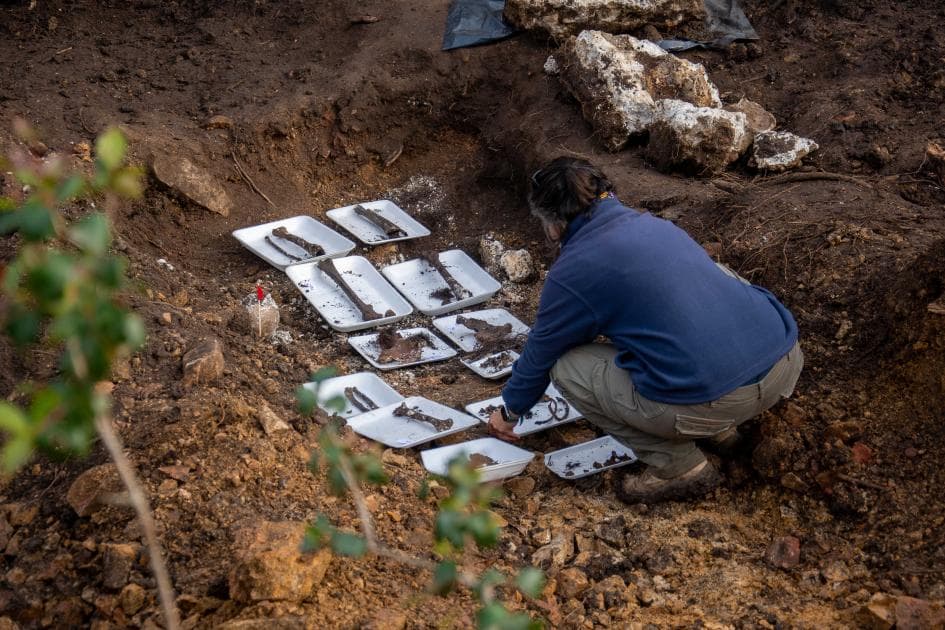SÃO PAULO, Brazil – Church leaders in Uruguay has joined the country’s institutions in charge of looking for people who disappeared during the 1973-1995 military dictatorship and hopes to receive information about the whereabouts of the human remains of dozens of victims of the regime.
The initiative had been discussed over the last six months by Observatorio del Sur (Observatory of the South or OBSUR), an association of Catholic priests and lay people that promotes humanitarian values, the Institución Nacional de Derechos Humanos y Defensoría del Pueblo (National Institution of Human Rights and Ombudsman’s Office, or INDDHH), an organ of the Uruguayan Congress that promotes human rights’ policies, and by prosecutor Ricardo Perciballe, who investigates crimes against humanity.
In a meeting between INDDHH, OBSUR, Perciballe, and the Uruguayan Bishops’ Conference’s Permanent Council last week, the Church agreed to take part in a joint effort to invite people to share information they potentially have about the locations of the human remains of political prisoners. The idea is to allow the victims’ families to finally have access to their relatives’ bodies and be able to celebrate a proper funeral, thus closing a painful chapter of their lives.
According to OBSUR’s president Nelson Villareal, who headed the national Secretariat of Human Rights during the government of President Tabaré Vásquez (2015-2020), the struggle for memory, truth, and justice in the South American nation has been evolving over the past two decades, with the creation of several organizations by the State and by civil society to investigate the crimes perpetrated by the military.
“The first commission worked for five years. In 2015, another committee was appointed to look into that period, and it became a national secretariat. In 2019, the INDDHH became the entity in charge of such investigations,” Villareal told Crux.
Despite all such efforts, only seven among 197 victims had their remains located. Dozens and dozens of families still wait to receive any information.
“Our idea is that the bishops can spread over dioceses and parishes the invitation to people who know where those bodies were buried to share their information with the Church,” he added.
It’s not a matter of punishing State agents who perpetrated crimes against humanity anymore, Villareal claimed. Many state terrorists, as they’re identified in Uruguay, have already undergone trial. The goal now is to gather evidence that can lead to finding human remains.
The plan is somehow the result of a dead-end dialogue with high-ranking military officers over the past few decades. After several ups and downs, a number of officers were charged for illegally imprisoning, torturing, and killing activists against the regime.
During the dictatorship, about 5,000 Uruguayans were detained for political crimes. Many of them were taken to clandestine military facilities that functioned like centers of torture. At least 197 of them were killed, but the number might be higher.
“Bodies may have been thrown from helicopters on the sea, others may be lost forever. But some of them were buried and covered by construction materials and still can be found,” Villareal said.
The trials and convictions of many officers created the idea among military commanders that any information they provide about their actions in the past can further deteriorate the armed forces’ reputation. So, they have been keeping continuous silence.
“But it’s a matter of humanitarian rights. Everybody should be able to bury their relatives,” Villareal said.
With the participation of the Church, Uruguayan human rights’ activists hope that at least some officers can anonymously provide useful information, as well as soldiers and civil assistants.
“A soldier or a nurse who buried the body of a torture victim following superior orders will now be called to reveal where that person was placed. A soldier who was then 20 years old is now 70, and still can help many people,” Villareal explained.
The partnership between the Uruguayan Church and institutions in charge of investigating the military regime’s crimes and locating the bodies of its victims was sealed after human bones were found by anthropologists in the so-called Battalion 14, a military building, on July 30. The remains of three victims of the regime have been found in the same location over the past years.
The discovery demonstrated that more bodies can be found, especially if witnesses decide to collaborate.
“All bishops committed to take part in that campaign. The Church in Uruguay was during the dictatorship a space of refuge and of autonomy for many. That’s an opportunity to keep supporting human rights,” Villareal said.













